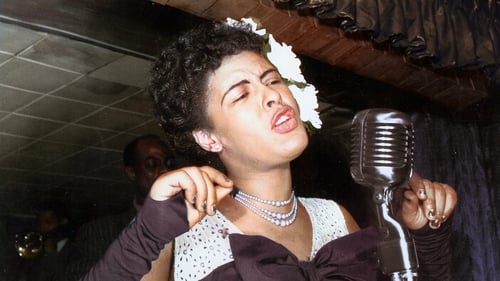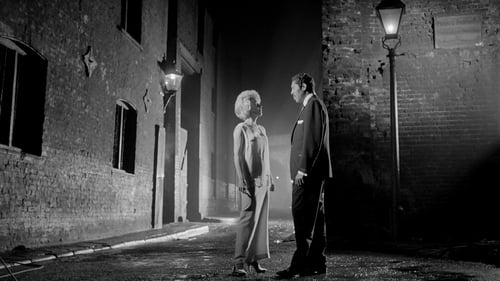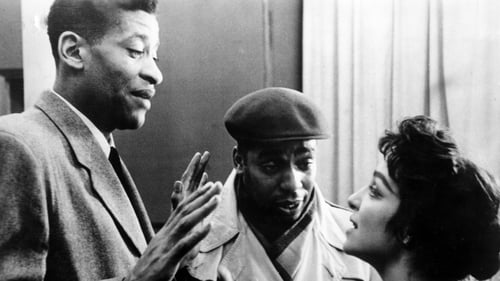Charles Mingus
Nacimiento : 1922-04-22, Arizona, USA
Muerte : 1979-01-05
Historia
Charles Mingus Jr. (April 22, 1922 – January 5, 1979) was an American jazz double bassist, pianist, composer, and bandleader. A major proponent of collective improvisation, he is considered to be one of the greatest jazz musicians and composers in history, with a career spanning three decades and collaborations with other jazz musicians such as Louis Armstrong, Duke Ellington, Charlie Parker, Dizzy Gillespie, and Herbie Hancock.

Songs
Después de su primera ruptura, Marc, un estudiante de cine, se va con con Laia de viaje al sur de Francia para ver de superar a su ex. Las emociones afloran pero Marc se siente estancado.

contrebasse

Music

self
‘Lady Day’ was one of the greatest jazz vocalists the world ever heard. In 1971, journalist Linda Lipnack Kuehl set out to write the definitive biography of Billie Holiday. Before her mysterious death in 1978, Lipnack Kuehl had taped over 200 hours of interviews. The tapes have never been heard. Now they form the basis of an atmospheric, multi-layered documentary that captures the many complex facets of a proud black woman, violent drug addict, loyal friend, vindictive lover and unforgettable singer of ‘God Bless The Child’, ‘Saddest Tale’ and the haunting ‘Strange Fruit’.

Himself
Music can change the lives of those who listen to it. This was the case for author Noël Balen, who was inspired to write a collection of poems, accompanied by a record, as a tribute to legendary double bassist Charles Mingus. A genuine work of art, this documentary filmed in black and white hooks us into the bewitching world of jazz. Artists and singers give voice to Balen’s poems, accompanied by the immortal music of Mingus. A dazzling musical voyage, as bold as it is inventive.

Conductor Gunther Schuller leads 30 renowned musicians in this spectacular world-premiere performance of Charles Mingus's epic composition, "Epitaph," filmed at Lincoln Center's Alice Tully Hall on June 3, 1989. Clocking in at more than two hours long, the landmark piece was unearthed only after the jazz legend's death in 1979. The orchestra includes such musical luminaries as Wynton Marsalis, Lew Soloff, Bobby Watson and Urbie Green.

Joe Gardner, trumpet; Hamiet Bluiett, baritone sax & clarinet; John Foster, piano; Charles Mingus, bass; Roy Brooks, drums. Cat Anderson, trumpet, guest star on "Perdido". Philarmonie, Berlie, Germany, November 5, 1972.

himself
Charles Mingus showcases three exceptional concerts performed in April 1964 featuring his most celebrated lineup--Jaki Byard (piano), Dannie Richmond (drums), Johnny Coles (trumpet), Clifford Jordan (tenor sax) and the great Eric Dolphy (alto sax, flute and bass clarinet). Recorded within an eight-day span, less than three months before Dolphy's death, the three concerts showcase Mingus's visionary leadership and the band's incredible depth and diversity with unique performances and arrangements of classics including "So Long Eric" and the groundbreaking "Meditations On Integration".

Himself

Himself (archive footage)
Don McGlynn's uncompromising and soulful documentary look at the tumultuous life of musician and rebel Charles Mingus is fascinating stuff. Mingus said of himself "I am half black man, half yellow man, but I claim to be a Negro. I am Charles Mingus, the famed jazz musician--but not famed enough to make a living in America." His statement summed up the conflict that plagued this musical genius his entire life: volatility, pain, prescience, and raw rage roiled inside a complex man, composer, bass player, and trombonist who transcended labels and refused to be pigeonholed into a single musical style--and who did not achieve real fame until late in his career.

Original Music Composer
A tribute to Charles Mingus.

Music
Stations of the Elevated exposes viewers to an underground art scene- that is, one found exclusively on the sides of subways and train cars. A moving portrait of late-70's NYC, the film boasts a soundtrack by jazz legends Charles Mingus & Aretha Franklin.

Himself
Charles Mingus was one of the greatest jazz bassists of all time, but most of all he was an innovative composer and a leader with a clear vision of what he wanted and where his music had to go. In 1975 he made his first appearance at the Montreux Jazz Festival, accompanied by musicians who had worked with him on the albums 'Changes One' and 'Changes Two', two milestones of music, from which the pieces performed in the show were taken. At the end of the concert, the band is joined by two special guests: the saxophonist Gerry Mulligan and Benny Bailey on trumpet.

Himself
A close-up of bass player and composer Charlie Mingus as he and his five-year-old daughter await eviction by the City of New York.

Description by D.A Pennebaker: "This movie is something of a mystery. Timothy Leary was getting married to a model named Nena Von Schlebrugge up in Millbrook, New York at the Hitchcock house, where Leary had been carrying on his hallucinogenic revelries for the past year or so after leaving Harvard. It was rumored that this was going to be the wedding of the season, the wedding of Mr. And Mrs. Swing as Cab Calloway put it. Blackwood took me downtown to meet Monte Rock III who was singing at Trudy Heller’s but who was also a very pricey and off-the-wall hairdresser and was in fact going to be doing the bride’s hair. Nena’s brother, Bjorn, known as the “Baron” was a friend of the Hitchcock’s, as was I, and the idea of going along and filming the wedding seemed not unwarranted. I’ve always wanted to film someone getting married."

Himself - Bass
La banda del batería Johnny Cousin (Patrick McGoohan) necesita que la cantante de jazz Delia Lane (Marti Stevens) forme parte del grupo para que los contraten. Pero resulta que ella abandonó su carrera al casarse con Rex, un gran pianista (Paul Harris). En la fiesta de aniversario de la pareja, Cousin intenta despertar los celos de Rex para acabar con su matrimonio y recuperar a la cantante.

Original Music Composer
Años 60 en la ciudad de Nueva York. Lelia y Tony son una feliz pareja. Un día conoce al hermano de su novia y descubre que ambos son de raza negra, aunque ella no lo parezca. Película fundamental dentro de la evolución del cine, al ser considerada el origen del cine independiente estadounidense. "Sombras" fue el debut como director del hasta entonces actor John Cassavetes. La película fue filmada en la calle, con actores desconocidos, una cámara de 16 milímetros en mano y una escasa subvención pública de 40.000 dólares. "Sombras" está rodada con asfixiantes primeros planos de unos actores que resultan desgarradores por su naturalidad, ya que, además, hacen de ellos mismos. Cassavetes fue uno de los primeros directores en mostrar los ambientes intelectuales y bohemios de Nueva York a través de un tema, las relaciones interraciales, muy poco habitual en el cine de finales de los 50.

Musician
Años 60 en la ciudad de Nueva York. Lelia y Tony son una feliz pareja. Un día conoce al hermano de su novia y descubre que ambos son de raza negra, aunque ella no lo parezca. Película fundamental dentro de la evolución del cine, al ser considerada el origen del cine independiente estadounidense. "Sombras" fue el debut como director del hasta entonces actor John Cassavetes. La película fue filmada en la calle, con actores desconocidos, una cámara de 16 milímetros en mano y una escasa subvención pública de 40.000 dólares. "Sombras" está rodada con asfixiantes primeros planos de unos actores que resultan desgarradores por su naturalidad, ya que, además, hacen de ellos mismos. Cassavetes fue uno de los primeros directores en mostrar los ambientes intelectuales y bohemios de Nueva York a través de un tema, las relaciones interraciales, muy poco habitual en el cine de finales de los 50.






